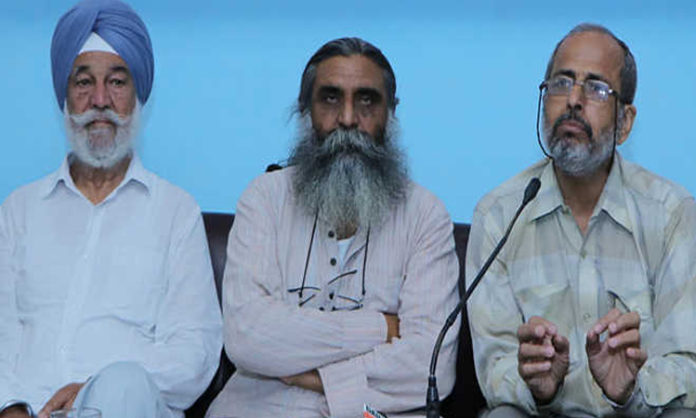Chandigarh, April 24:Farm and consumer activists of Haryana and Punjab on Wednesday presented their findings with regard to illegal Bt brinjal cultivation in Haryana.
“On a tip-off about the illegal Bt brinjal cultivation in Fatehabad district, a sample was collected from the fields and tested subsequently. The sample was found to be transgenic,” said Rajinder Chaudhary, a retired professor of economics and farm activist.“There is a good reason why the Centre had not approved the commercial cultivation of Bt brinjal in 2010. Environmental and health concerns with regard to this transgenic food crop remain. There is a grave danger of illegal Bt brinjal cultivation proliferating if the Central and state governments do not act on our complaint immediately. We demand immediate and deterrent action by the authorities,” he said.
The sample has been sent to a private laboratory for further confirmation, while representatives of farmers’ and consumers’ organisations and scientists have submitted another sample to the Haryana Agriculture Department and Government of India’s apex regulatory body, the Genetic Engineering Appraisal Committee.
In February 2010, after nationwide public debate, the Centre had placed an indefinite moratorium on commercial release of Bt brinjal. “As such, the cultivation of Bt brinjal is not only illegal, but it also puts human health and genetic purity of thousands of brinjal varieties that evolved over millennia at great irreversible danger,” Chaudhary claimed.
Umendra Dutt of the Kheti Virasat Mission demanded that the state government must immediately investigate into illegal cultivation in Fatehabad district and find out the source of supply of Bt brinjal seeds. “No penal action should be taken against farmers who have been duped into cultivating Bt brinjal. Rather, farmers should be compensated for destroying their crop,” he said.
APS Mann, retired dean of Punjab Agricultural University (PAU), Ludhiana, said that since brinjal was a part of daily diet of people, governments could not allow multinationals to play with the health of the masses.




































